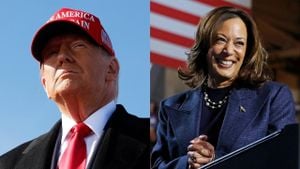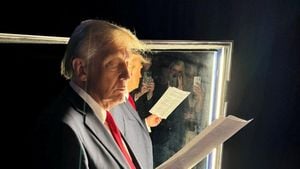South Africa has shut its border with Mozambique once more as protests following the recent elections spiral out of control, marking another chapter of turmoil for the neighboring country.
The unrest began after the Mozambique Electoral Commission announced the results of the October 9 presidential elections, which saw the ruling Front for the Liberation of Mozambique (Frelimo) party, led by Daniel Chapo, securing another five-year term. This news was met with widespread accusations of electoral fraud, sparking demonstrations across Mozambique.
On November 1st, South Africa's Border Management Agency closed its side of the border, after around 15 Mozambican border workers sought safety on the South African side, fleeing from violent protests back home. Mike Masiapato, the agency commissioner, reported unprecedented clashes, with both police and protesters reportedly setting the stage for chaos. "They say the protesters are on the way, and have just passed the area where they process trucks and travelers. They looted everything there," he stated, echoing worries about attacks on border facilities.
South Africa's security forces heightened their presence at the border, urging citizens to avoid traveling to Mozambique for non-essential reasons. The situation escalated when authorities noted at least 20 reported fatalities and hundreds of injuries since the unrest began. Human rights advocates have described the crackdown on protesters as one of the most severe instances of violence witnessed by Mozambique's citizens.
Police have utilized tear gas and rubber bullets to disperse crowds, leading to chaotic scenes throughout Mozambique’s major cities, particularly Maputo, which has seen one of the most significant concentrations of protesters. Social media has been buzzing with videos portraying young demonstrators barricading streets with debris and lighting fires, illustrating the mounting tensions.
Starkly, the leader of the opposition, Venancio Mondlane, was reported to have fled the country after his aides were killed before the election results were disclosed. Mondlane, who captured around 20% of the presidential vote, criticized the electoral process vehemently, claiming blatant manipulation by the Frelimo party. The election irregularities were also noted by the European Union’s election observation mission, which cited concerns over ballot integrity and manipulation of vote counts.
The atmosphere has become increasingly fraught for Mondlane and those aligned with the opposition. Following threats from the authorities to deploy military forces should protests continue, many fear for their safety. Protests have ignited nationwide, leading to clashes with police who have described the demonstrations as violent and intolerable. Protesters have resorted to setting fire to government offices and vehicles, indicating rising anger against Frelimo’s continued dominance.
Since the initial protests began, internet services have been sporadically disrupted, with access to social media platforms being blocked, limiting the opposition's ability to mobilize support. The public outcry has also been met with brush-offs from officials, who have regarded the situation as necessary to maintain order amid claims of public disorder.
South Africa's international relations minister, Ronald Lamola, expressed concern over the situation, calling for peaceful resolutions to the unrest: “South Africa expresses concern at the outbreak of incidents of post-electoral violence and regrets the loss of lives and destruction of property.”
The historical backdrop is stark, as Mozambique’s political climate continues to be shaped by its traumatic past which includes decades of civil war and subsequent struggles to achieve stable governance post-independence from Portugal. The Frelimo party has held significant power since the late 1970s, fostering feelings of disenfranchisement among citizens who are increasingly demanding political reforms and transparency.
With the threat of military intervention looming, and the stakes ever higher for those opposing the current regime, the international community watches closely as Mozambique continues to navigate its post-election turmoil. Amidst unrest and struggles for power, the country’s future remains uncertain.



